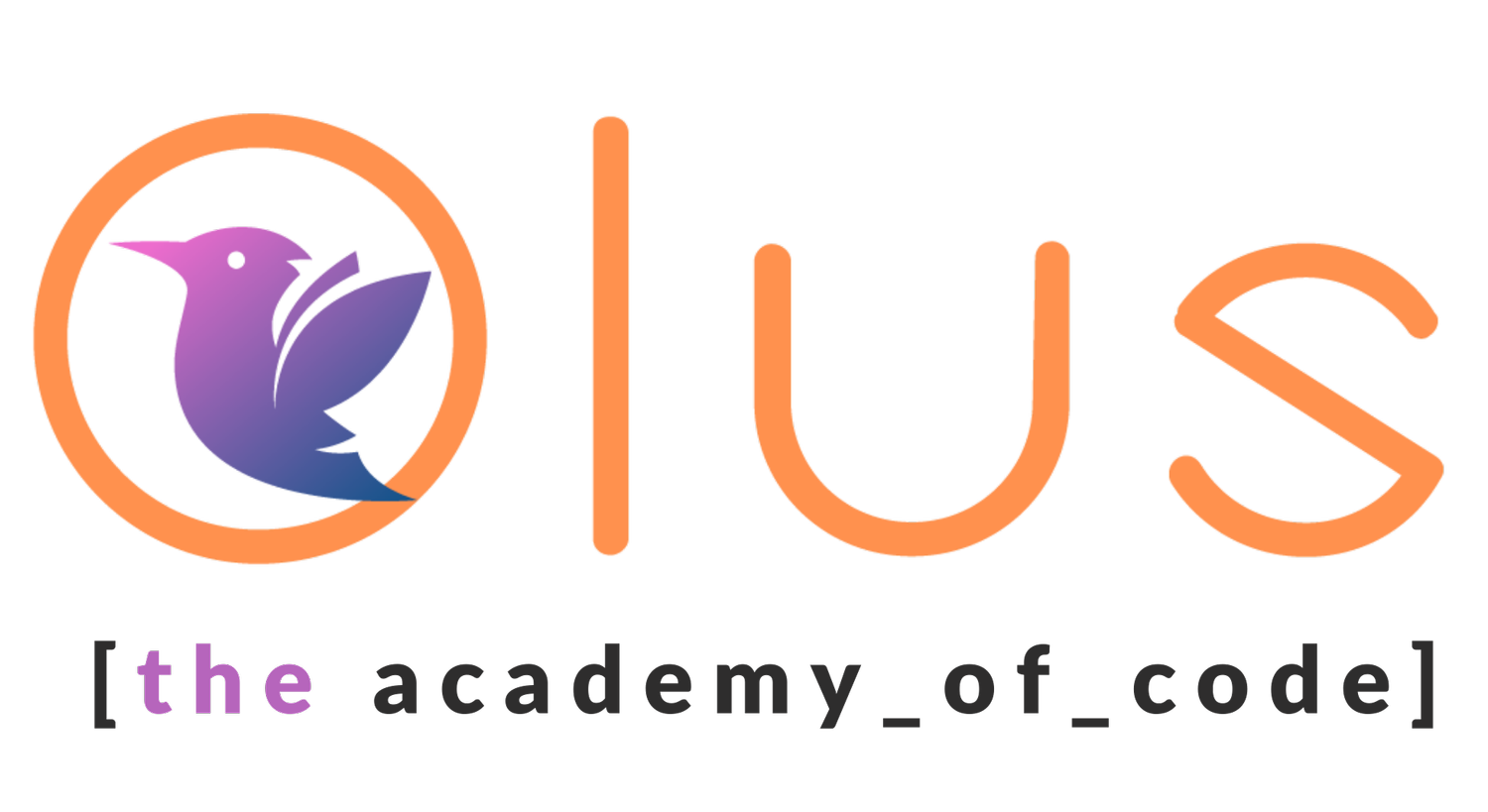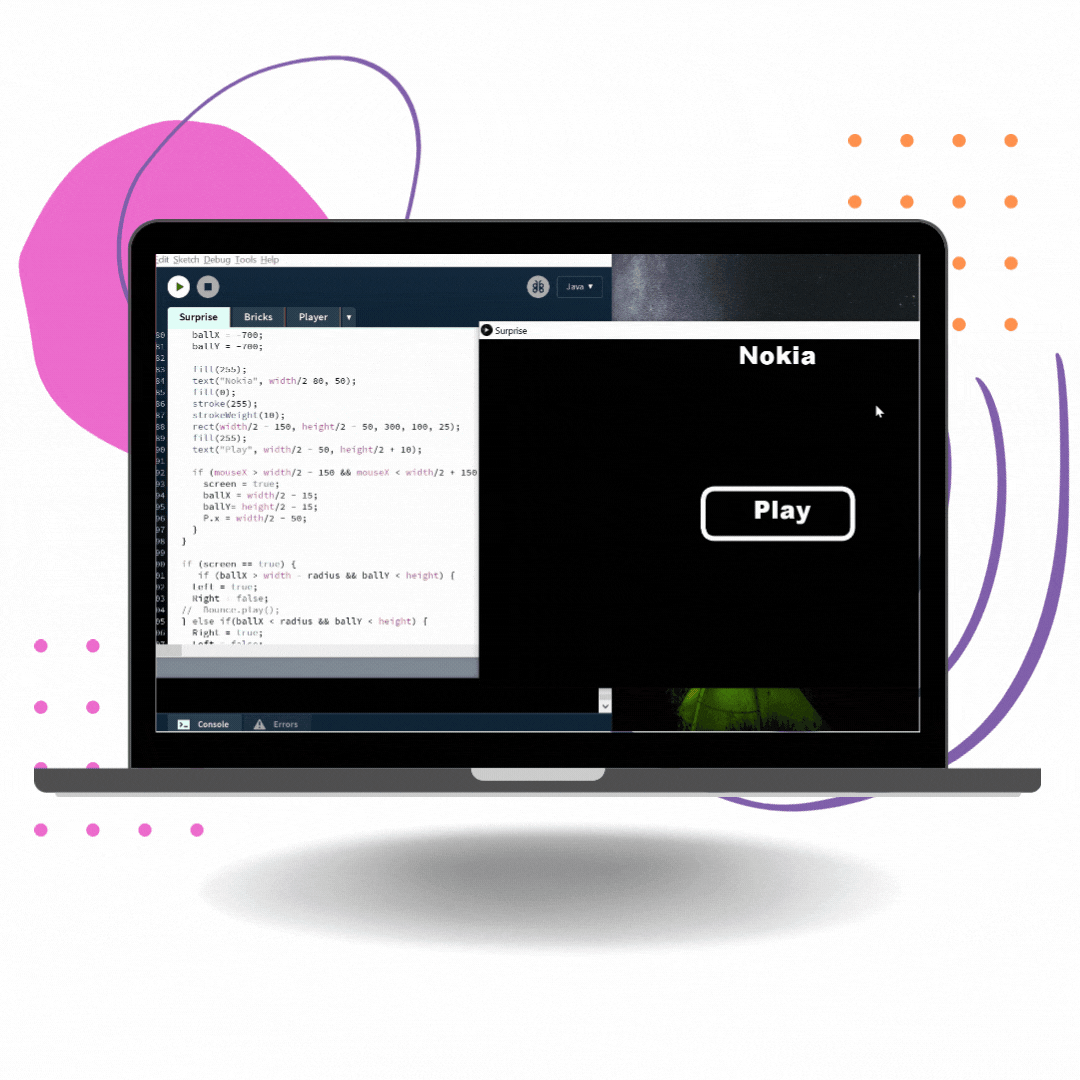SCRATCH 🤖
PROCESSING 📟
CSS ANIMATIONS 👾
PYTHON 🐍
SCRATCH 🤖 PROCESSING 📟 CSS ANIMATIONS 👾 PYTHON 🐍
EVENING & WEEKEND CODING CLASSES
sPring TERM 24
Just like playing a sport or learning a musical instrument, learning to code takes time & practice! Our Spring coding classes are the best way to help your child improve their coding skills during the school term. Classes run on evenings & weekends and are open to both returning students and complete beginners! Register now or scroll down for more info:
WHAT WILL MY CHILD LEARN?
Whether your child is a total beginner or has some existing coding experience, we make sure that students enter our unique Pathway to Computer Science program at a level that is appropriate to them. Our hybrid approach and small class size allows tutors to cater to all abilities. Regardless of your child’s existing coding experience, the coding content is tailored to each individual student and differentiated learning allows them to progress at their own pace!
CODING TERM FORMAT
CODE FOR One or Two Days per Week
DAY 1 - CORE CODING CLASS
This is the core coding class that all students who join the Olus Academy of Code take. Each 1hr class (1.5hr for 13+) takes students through our Pathway grade by grade - advancing and improving their coding skills just like they would if they were learning a musical instrument!
DAY 2* - PATHWAY EXTENSION CLASS
Students can also register for a second hour of coding per week during term (in addition to their core coding class). They will focus on learning various additional aspects of coding like python, CSS animation, Twine and many more!
*Note: This second class per week is only available to Fresher & Junior age groups (ages 9-13) and is exclusively for students who have also signed up for a core coding class. This extra class takes place on Wednesday, Thursday or Saturday.
Godot Game Design
New course for Senior (age 13+ students). The perfect complement to a core coding class. Click here for more info →
RETURNING STUDENTS
WORK TOWARDS YOUR NEXT GRADE!
For those who started coding with us during the summer months, or are returning from a summer break, we will pick up right where they left off! All our tutors have access to a database of students’ progress, and they work hard to make sure every student gets just the right level of challenge at every class, every week at the Olus Academy of Code.
GRADE 1 (Parent & Child) → GRADE 2 & 3 (FRESHER 9-11)
For students who turn 9 by September it is now time to transition into our freshers group! Our Fresher Group (Ages 9-11) is broadly for students in 3rd/4th class and includes a variety of block based and text based languages, along with activities for students to learn about coordinate geometry, how search engines work, and much more.
GRADE 2 & 3 (Fresher 9-11) → GRADE 4 (Junior 11-13)
Students graduating from Grade 2/3 into Grade 4 will take their first steps into the world of Processing. Grade 4 provides a solid foundation in programming covering key subjects such as:
Functions - how to use many of the basic Processing functions.
User input - interacting with an application using the mouse and keyboard.
Conditions - using "if" statements to allow the program make decisions.
Variables - storing, retrieving and manipulating data using variables.
Example of end conditions and variables making a ball move and loop on its own.
GRADE 4 (Junior/Senior 11-13+) → GRADE 5-7 (JUNIOR/Senior 11-13+)
Having acquired a foundational understanding of the basic building blocks in grade 4, grades 5-7 provides opportunities to dive a little deeper into more advanced ideas. This also includes the introduction of classes and objects. These are some of the most important concepts in java, and allow students to approach much more complex problems with the tools needed to solve them.
It’s also worth noting that as students progress through the Pathway grades, they will take on larger projects and these will take longer to complete. One term doesn’t necessarily equate to one grade - especially for the higher grades!
PROJECT EXAMPLES
Alien Invaders Game
Aliens attacking earth! Using the all-time classic Space Invaders as inspiration, students are required to write their own classes from scratch for this game, as well as revising many topics from previous terms including collision detection, user input and complex movement patterns.
DICE ROLL APP
Draw a dice onscreen, and roll it on cue from the user. Building this app draws upon term one skills, including random numbers, user input and simple shapes. Students can also play around with various colours and designs as they please!
GRADE 7 (Junior/Senior 11-13+) → GRADE 7-10 (Senior 13+)
Students from Grade 7 onwards will encounter a variety of advanced programming topics and lots of student driven project work. Grades 9 and 10 in particular, are taught university-level content.
Students who pass the capstone assessments to progress this far and complete Grade 10 have demonstrated an extremely strong grasp of coding skills and an aptitude for critical thinking, problem solving and software development.
At every step, our instructors encourage development of good coding practices and build students' knowledge of software development and game design. This will be particularly true in the final grades, as our instructors work with students to hone their design skills and fine tune their code.





















